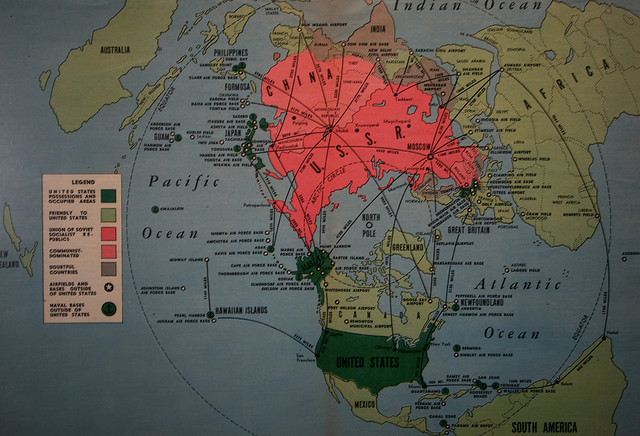 Describing cyber activities by the US and China as a new Cold War in cyberspace is hyperbolic and inaccurate. The relationship between the US and China and the international environment for this relationship are very different from the Cold War, when relations and contacts with the Soviet Union were extremely limited and there was no economic interdependence or interconnection. There have been none of the threats, ideological challenges or proxy conflicts that characterised the Cold War.
Describing cyber activities by the US and China as a new Cold War in cyberspace is hyperbolic and inaccurate. The relationship between the US and China and the international environment for this relationship are very different from the Cold War, when relations and contacts with the Soviet Union were extremely limited and there was no economic interdependence or interconnection. There have been none of the threats, ideological challenges or proxy conflicts that characterised the Cold War.
The US has sought to avoid a military focus in its cybersecurity efforts. It has cast China’s cyber espionage as a commercial matter (Treasury Secretary Lew has told China’s President that cyberattacks are ‘a very serious threat to our economic interests’). For example, the US indictments of People’s Liberation Army officers for cyber espionage focused intentionally on trade and economic crimes to avoid any implication that this was a military contest.
China has never used ‘force’ (defined as acts of violence) against the US in cyberspace; it will use cyberattack against US military forces in any clash, but espionage isn’t war—if it were grounds for war, the US would find itself at war with many countries. Both China and the US have implicitly avoided truly damaging attacks or military confrontation in cyberspace, each restricting its activities to espionage. Espionage isn’t a crime under international law, and it’s not in the US interest to make it so. Dealing with China’s cyber espionage requires a sustained effort to construct norms and persuade China to observe them, to create consequences for Chinese actions, and to improve cyber defences in the interim.
This is a much more complex relationship than the Cold War. Managing the trajectory of US–China relations to avoid conflict will be difficult, and Chinese misconceptions about international affairs and American intentions only complicate the task. Similar misconceptions about economic warfare on the US side don’t help to manage the relationship. China’s best seen as the most assertive and the most potent of a number of new powers that challenge the existing international order and the American role in it. The long-term goal for the US and other Western nations is to bring China into the international ‘system’ of rules that govern state behaviour, and that means persuading it to get its ‘cheating’ in trade and in cyberspace under control. Some economic tools, such as sanctions, would be useful in applying pressure to China, but military force has very little utility.
Gigantic, secret conspiracies are a staple of pulp fiction. In practice, they’re impossible to sustain on any grand scale. Belief in a Chinese grand strategy of economic warfare against the US assumes that beneath China’s almost chaotic and hypercompetitive growth there’s some hidden agenda, and that China could develop a secret plan to achieve it and keep the plan secret across four different leaders for more than 25 years.
The frequent references to a Chinese grand strategy reflect an ingenuous effort to explain Chinese actions. They also reflect the deep unease China’s growth has created, given the discrepancy between its promises of a peaceful rise and its acts of assertive self-interest. When the Chinese accuse the US of having a grand strategy, it amuses most Americans. The US doesn’t have one, but it does have consistent interests and a common approach to problems shaped by its ideology and politics. The same is true for China.
We can impose an artificial order on a complex international problem by ascribing Chinese actions to economic warfare, but the reality, unfortunately, is much more difficult. In struggling to define conflict in an era in which the use of force is more expensive, more dangerous, and therefore less often resorted to by states, the war metaphor can be appealing, but it’s not a helpful guide for policy. We could argue that China is simultaneously attempting to build its economy and weaken opponents, but that would involve damaging its major markets and sources of finance.
If our choice in explaining Chinese behaviour is between commercial motives and deliberate geopolitical strategy, the former better explains actions and events.
James A. Lewis is an ASPI-ICPC International Fellow. He is senior fellow and director of the Technology and Public Policy Program at CSIS, where he writes on technology, security, and the international economy. Image courtesy of Flickr user Jeroen Elfferich.
This is an excerpt from ASPI’s latest Special Report, China’s cyberpower: international and domestic priorities, released today.

